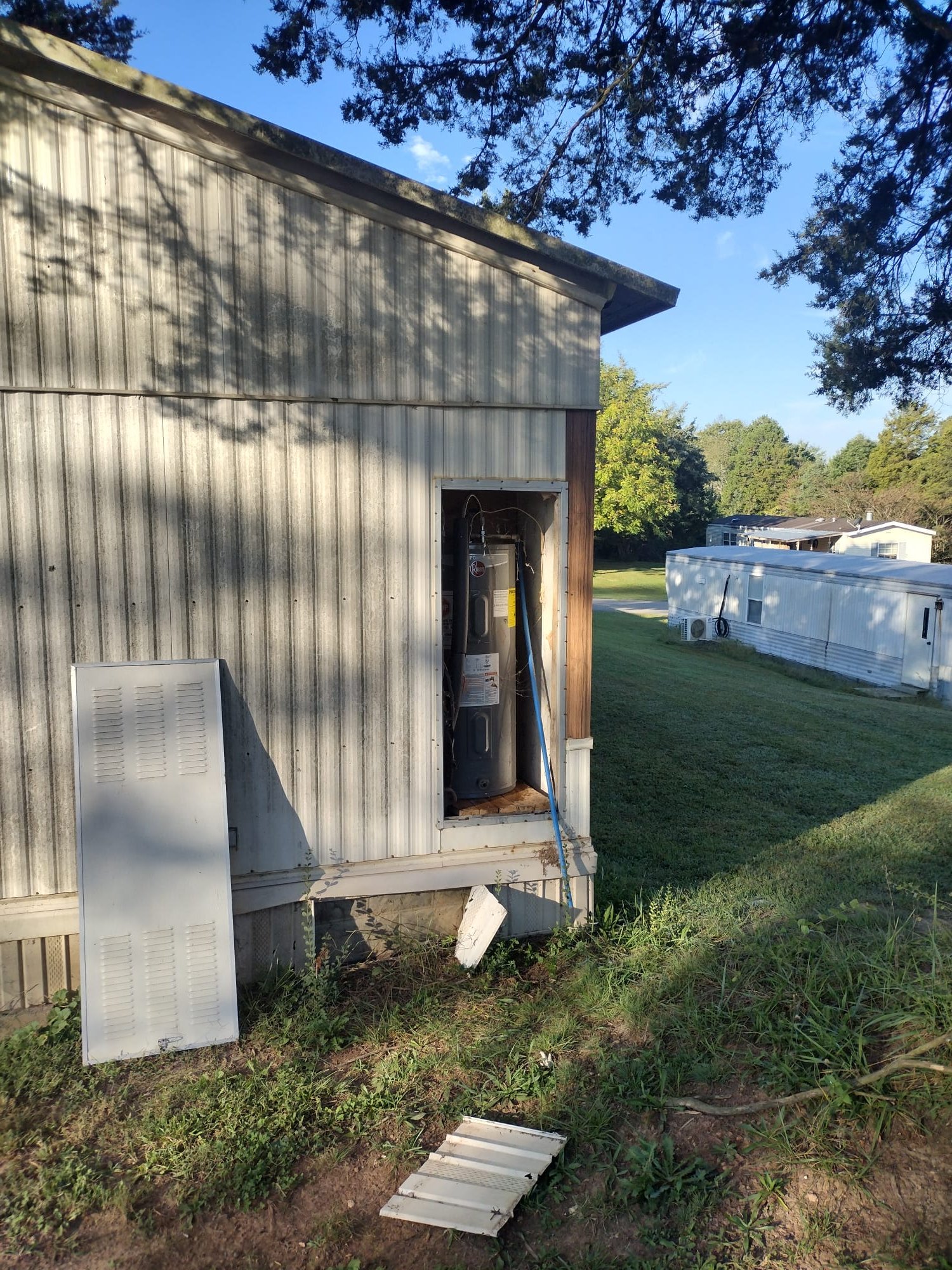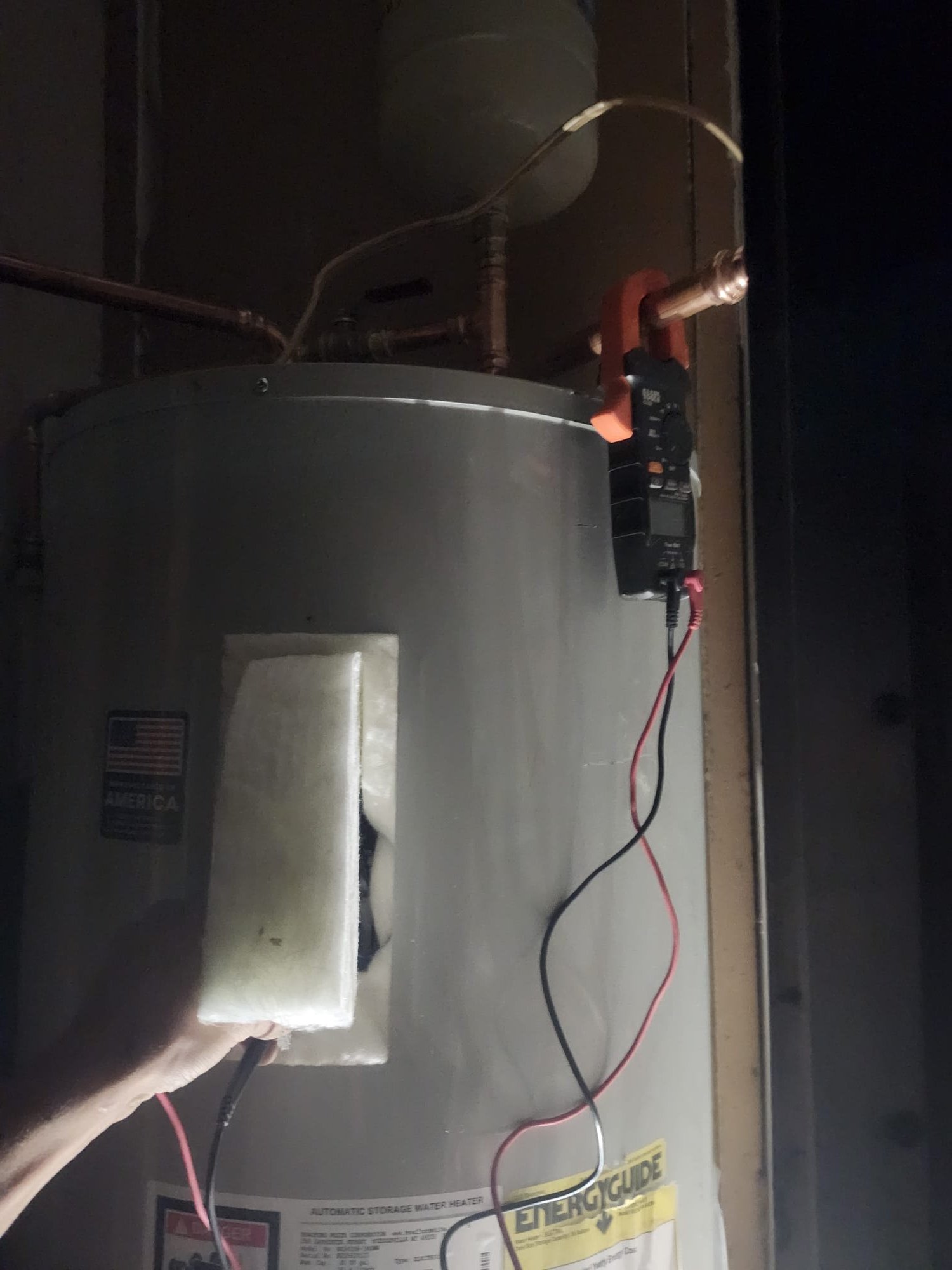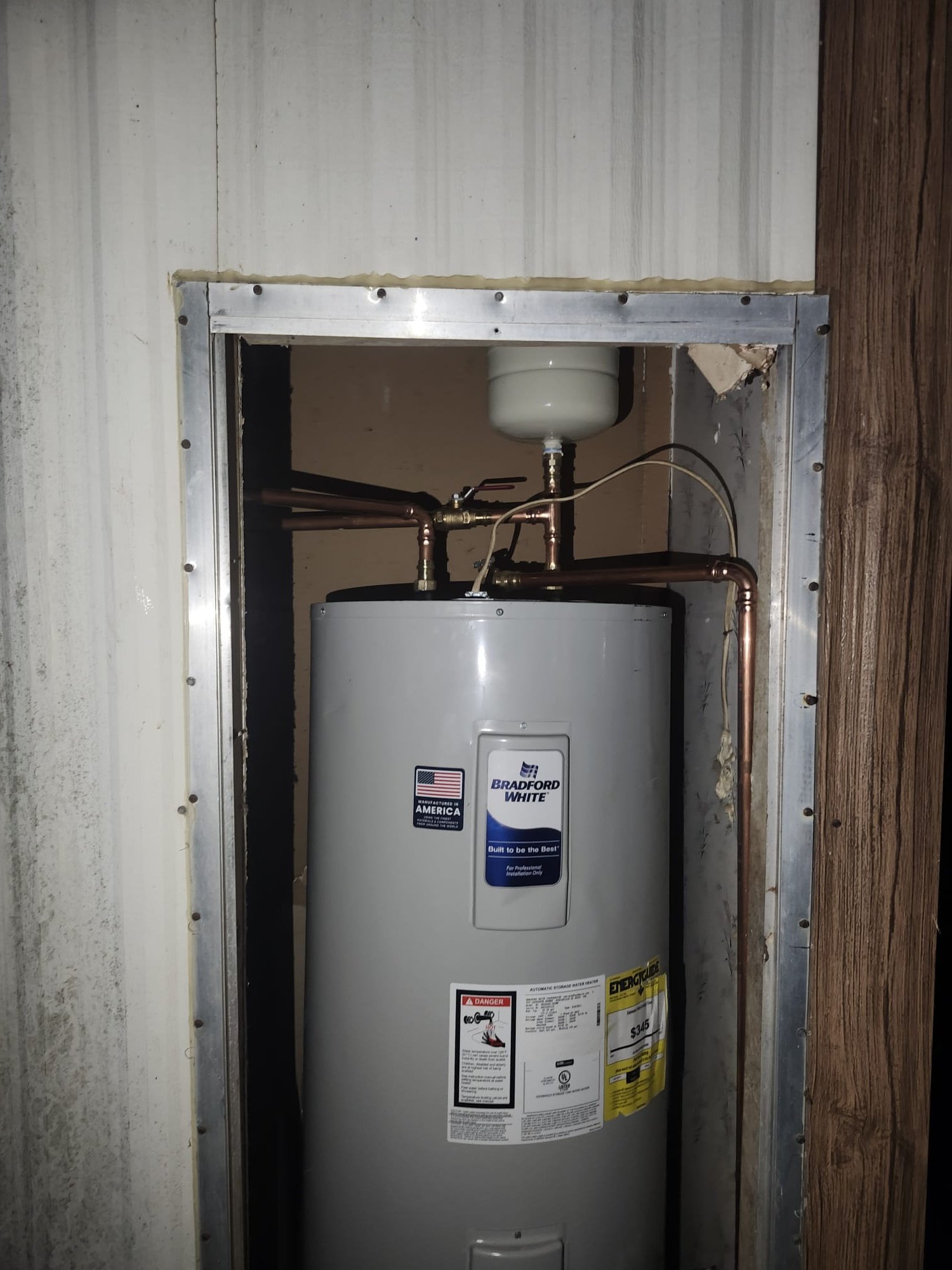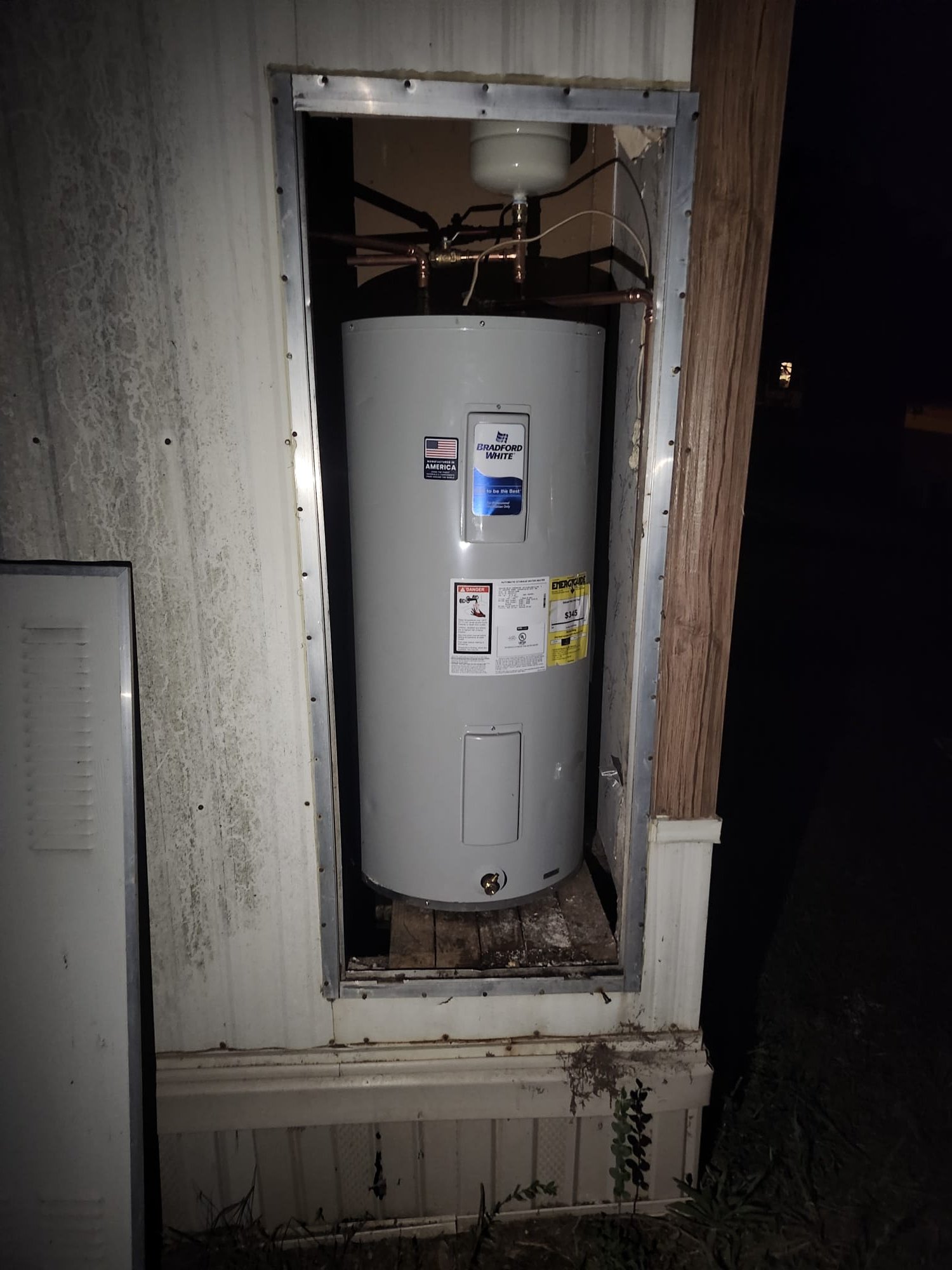Keeping the Warmth Flowing: A Lenoir City Water Heater Success Story
For expert Plumbing in Lenoir City, check out our Plumbing in Lenoir City services.
Case Overview
A homeowner in Lenoir City noticed water pooling beneath the exterior water heater of their manufactured home. The ground was muddy and the source of the drip wasn’t immediately obvious. Concerned about wasted water and potential damage, they reached out to HEP technicians for a thorough inspection.
How It Was Solved
- Diagnosis: Our HEP technician traced the leak to a cracked PEX supply line and a failing tank on the 40-gallon water heater.
- Removal: The old heater was carefully disconnected and removed. To access the buried PEX line, a small section of the home’s metal skirting was temporarily taken off and later reinstalled.
- Repair & Install: The damaged PEX line was replaced, and a new, code-compliant water heater was set in place. All fittings were tightened, electrical connections tested, and fresh insulation wrapped around the unit to protect it from weather extremes.
- Testing & Wrap-Up: Once water and power were re-activated, the HEP technician checked every joint for leaks and verified proper voltage at the heating elements. Finally, the access panel was secured and the work area tidied up.
Here’s a glimpse at our team in action:
Tips Every Homeowner Should Know
1. Spot Early Warning Signs
Keep an eye out for damp spots, rusty fittings, or puddles near your water heater. Early detection of small drips can prevent larger floods and costly repairs.
2. Maintain Proper Access
Ensure the panel or skirting around your outdoor unit is easy to open. Clear vegetation and debris regularly so technicians can reach valves and lines without digging or damage.
3. Insulate to Extend Lifespan
Wrapping your exterior water heater and supply lines with weather-rated insulation guards against freezing in winter and heat loss in summer. It’s a small step that saves energy and reduces wear.
4. Trust Professional Testing
HEP technicians use tools like clamp meters and pressure gauges to confirm safe electrical and plumbing performance. Relying on these checks ensures your heater runs efficiently and safely.
5. Look for Quality Installations
A neat installation—straight copper pipes, secure expansion tank, and sealed access panels—means the job was done right. Ask your technician about code requirements and warranty details.
By following these simple practices and working with experienced HEP technicians, you can keep your home’s hot water system reliable and efficient throughout the year. If you ever spot a leak or suspect a problem, don’t wait—reach out for professional help and rest easy knowing your home is in good hands.
Published on October 21, 2025



